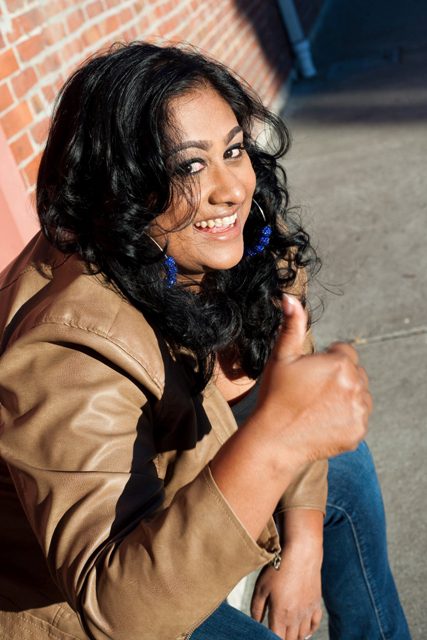
The Women Of The Zee TV Desi Comedy Fest Talk To Girls That Roam About Making Fun Of Their Culture And Making Their Mark In A Man’s World
by Heather Cassell
It’s still a man’s world in the standup comedy. There’s no joking about it. Then factor in being South Asian. What’s the immediate image that comes to mind? If you are in America, which we are, it might be a nerdy computer engineer who speaks English with a heavy accent. Yeah, no. Mix up the gender what image do you have now? You draw a blank, well you used to until Mindy Kaling arrived in American homes through television shows, “The Office” and then her own show “The Mindy Project.”
Mindy is a decent introduction to the fact that there are South Asian women comedians, but to really get a taste of what these women have to offer in the laugh factor zone the Zee TV Desi Comedy Fest is showing off 16 of today’s hottest South Asian woman comedians for the next two weeks.
The women are part of the stellar lineup of 50 South Asian comedians at the festival which kicked-off Thursday and runs through August 21 at various venues throughout the San Francisco Bay Area.
This year’s lineup of women comedians at the festival include: Franncesca Fiorentini (San Francisco), Shanti Charan (San Francisco), Shazia Mirza (London), Monrok (Los Angeles), Priya Prasad (San Francisco), Vasu Primlani (New Delhi), Sabeen Sadiq (Chicago), Mona Shaikh (New York), Melissa Shoshahi (Seattle), Irene Tu (San Francisco), Sindhu Vee (London), Priyanka Wali (San Francisco).
The number of women comedians is boast-worthy for the festival producers Abhay Nadkarni and Samson Koletkar who are proud to present audiences with so many women comedians and want more in the future.
Many of the women are all impressively accomplished comedians. Monrok has appeared on HBO and is the winner of the funniest female comedian in California. Mona produces “The Minority Reportz” at the World famous Comedy Store in Los Angeles. Shazia has appeared on the BBC. Irene was recently named one of KQED’s Women to Watch. Vasu became the first comedian to receive the Presidential Award in India this year.
“I am excited to see all the female comedians, because yaaay for Indian women being funny!!” says Priya, who is performing for the third time at the festival.
Since more women than ever before are taking the stage at this year’s festival, Girls That Roam was curious about who these women comedians are; how they discovered their gift of making other people laugh; and about the intersection of being South Asian, women, and comedians.

Born With The Funny Bone
Many of these funny girls have been telling jokes since they were kids.
Melissa began telling jokes and doing impressions as a child recording herself and performing at family gatherings, she says.
“I think I knew I liked to make people laugh at that age, but I had no idea it would evolve into stand-up as a living,” says Melissa, a 32-year old Iranian American, who has been doing standup comedy for seven years.
Like Melissa, Priya, 38, didn’t think that being a comedian, like the ones her father introduced her to while growing up, was even an option.
“I have a very specific memory of when I was a kid, I loved jokes, hearing them reading them cartoons whatever, but for the life of me I could never tell someone else’s joke,” says Priya, who is now in her seventh year as a professional comedian. “My Dad is pretty funny and he introduced me to the greats when I was a kid, I grew up watching Peter Sellers, Danny Kaye, Lucille Ball, Carol Burnett, Dick Van Dyke, Richard Pryor, and Steve Martin to name a few.”
Friends & Fans
However, it often took friends and fellow comedians to encourage these women to make the world laugh.
The Oakland-based comedian Priya was never attracted to the spotlight, she says, “Comedy kind of happened to me.”
“I was pushed into it by a friend in the industry who thought I was funny,” says Priya. “He encouraged me to learn how to tweet jokes for a couple years and through that I got a large fan base of other comedians who then pushed me to get on stage.”
It still took her a while to tell jokes before an Indian audience. Growing up around many African Americans, she first took her Indian perspective to urban rooms. It was where she felt the most comfortable, she says.
“It actually took a while for me to be comfortable doing jokes for a room full of Indians, oddly enough,” says Priya, who talks a lot about her parents and her own experiences as a first generation Indian American in her standup routine.
“I also talk about the Indian/African American experience,” she says about her style of comedy that has been described as “witty, intelligent, and rich with the cultural experience of an Urban East Indian American Woman.” “If you are wearing what could be my cousin’s hair I have the right to make fun of it!”
That push onto the stage was the “best decision ever!” says Mona, about her friend who encouraged her to take the stage in New York more than six years ago. That moment launched her career being a professional standup comedian. Since then she has traveled the world and is the first Pakistani Muslim female comedian to producer her own show, “Minority Reportz,” which features the “hottest diverse comedians in the business,” she says.
“My career kinda quickly took off after my first open mic at Comix in New York City,” says Mona, who started performing all over Manhattan as the “gigs kept coming.”
Once Melissa discovered that she was good at making people laugh and that it could be a career she gave it her all, she says.
“I honestly just gave it my all and focused on getting up on stage as much as I could,” says Melissa, who has been a standup comedian for seven years. “I was able to get my foot in the door and start opening for headliners and slowly building my way up from there.”
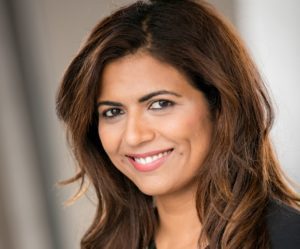
Busting Through The Glass Ceiling
Many of the women have experienced sexism and racism in the comedy world, but at the same time they’ve met other comedians and producers like Abhay and Samson who appreciate them and promote them.
Some of the challenges the women have faced include sexual aggression and patronizing attitudes by men, being thought of as a threat, being pigeon holed and tokenized, and gaining acceptance on the stage and at home.
“Some male comics feel compelled to be sexually aggressive or inappropriate with you because you’re a female and a comic,” says Mona. “Also some male comics feel it’s their duty to tell you what you can or cannot talk about or how you should tell your jokes.”
Priya feels fortunate to have entered the comedy world in her 30s as opposed to in her 20s. That comfort level of being in her own skin gives her the power to know what her limits are and to say no to situations that make her feel uncomfortable to “avoid some situations,” that she wouldn’t have when she was younger, she says.
“This is a male dominated industry and there are many times I’ve had to decline a gig because of the sexual innuendos that surround the show,” says Priya.
More Than Just Mindy
If it’s not a sexually aggressive environment then they are tokenized and pitted against other South Asian comedians, the women say.
“There’s room for more than one female comedian, no threat here. We are all uniquely different,” says Melissa.
Priya, who appeared on the 9th season of NBC’s “Last Comic Standing,” agrees.
“I think people are excited to see an Indian female who is funny,” she says, however, in the comedy world is the challenge is the “fact that it can sometimes feel like Indian comedians are pitted against each other for that one spot. People who produce big shows seem to think one Indian comedian is enough.”
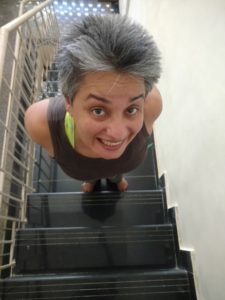
Vasu, a 43-year old gay woman comedian from New Delhi, India, who is performing for the first time at the festival, believes that it’s important to change the audience’s perception of South Asian women comedians, South Asian comedians, and women comedians by being present and represented on the stage.
“Women are as professional as men comedians,” says Vasu. “It’s just in the perception of the audience that there is a difference. And the same goes for South Asian or non- South Asian.”
However, opening people’s minds and success hasn’t come without harsh criticism or being assaulted, which happened to Vasu twice: first by an Indian man and the following evening by the man’s wife in Toronto.
“They said I was ‘insulting’ India by talking about the way people drive, Indian men etcetera,” she says. “A friend pointed out to me that since it’s the comedian’s job to ‘hold up a mirror to society,’ this mirror probably hit too close to home.”
“I should have clarified, ‘Sir, I’m not insulting India, I am insulting you.’” continues Vasu.
But it’s not all attacks, she has also received compliments from men coming to her shows and vowing to change their behavior toward women, like an elderly Muslim man who approached her after a show.
“He said, the way you say Indian men stare at women, I admit I do. I am a grandfather. I have a daughter, who has a daughter of her own, and I admit I still look upon women the same way,” she says. “He said, ‘By Allah, I won’t anymore.’”
Vasu has also found that in a patriarchal society, such as India, that men are uncertain about women comedians.
“I have actually been told by a male friend that he was hesitant coming to an all-woman lineup I’d produced because he thought he wouldn’t understand women’s humor. He wrote to me at 4 a.m., and said, ‘I’m still giggling,’” says Vasu, whose humor is subtle, focuses on the environment and social issues, such as women and gay, lesbian, bisexual and transgender.
That is one of the moments Vasu counts toward her successes.
“It is a privilege being a comedian, one I take seriously,” she says. “Through comedy we can deliver critical messages around sensitive subjects in a way that not only will those subjects be discussed; they would become immortalized in how memorable they are.”
She’s also proud of “being at the forefront of the comedy scene in India” and promoting Indian comedy in “traditional South Asian culture is a big one,” she says.
Vasu is currently working on a Hindi sitcom, which began filming prior to her traveling to the Bay Area to perform at the Zee TV Desi Comedy Festival. She plans to resume filming after the festival ends and she returns to India.
Not Typical South Asian Girls
If it isn’t men’s attitudes, racial or sexual bias, or audiences’ and producers’ expectations in the comedy world, it’s the audience at home that can be the most challenging.
“Being a comic is a hard life,” says Mona, who has had to overcome family disapproval and skepticism. “As a South Asian female from a Muslim background, comedy or the arts, is not something you’re suppose to pursue.”
However, Mona finally won her mother’s approval after she spent time watching her work.
“She’s become my biggest cheerleader,” says Mona.
Priya knew she was on the right track during a trip home.
“I was a couple years into being a standup and I was home to visit my parents, so they invited friends over. We were sitting around chatting [and] I said something that made everyone laugh. My Dad said, ‘Huh, I had no idea you were this funny!’ That was when I knew I was funny.”
An added bonus was when she appeared on the 9th season of NBC’s “Last Comic Standing,” that she not only got a taste of fame, but her parents did too.
“My parents got to experience that success too by getting their 15 minutes of fame on the show as well. The best is when the episode aired in India and my parents felt famous all over again!”
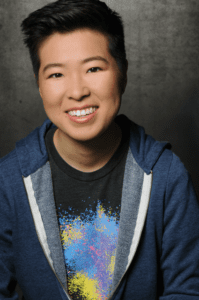
The Power Of Example
The women agree that by performing – stage or screen – sends a powerful message to other girls and women.
“Representation is always important,” says Irene, a 24-year old lesbian whose routine focuses on race, gender, and sexuality, about being a woman in a male dominated field and where a few people simply don’t consider women funny. “Being able to see yourself onstage and onscreen allows people to see just how funny women really are (and not just the same kind of humor – we’re all different and are funny in different ways). It also encourages other women to do comedy.”
Vasu agrees.
“Like any other profession today, the gender ratio in standup comedy is also greatly skewed, more so in South Asia than in the United States, UK or Australia,” says Vasu. “It is wonderful when someone says my favorite comedian is ‘xx’ and she happens to be a woman.”
Melissa agrees. She feels that one of her biggest successes is simply being who she is talking about her heritage as a second generation Iranian American on stage for other women to see and inspiring other Middle Eastern women to “follow their dreams.”
“To encourage and inspire other women to follow their dreams, especially for Middle Eastern women. They can see there’s more to the culture than what is asked of them,” says Melissa, who animatedly tells stories about family, love, and pop culture on stage.
“It’s extremely important. We represent what comedy is and it’s not just a man’s world, especially for the Middle East where women are not as outspoken,” says Melissa. “I think it’s a great opportunity to showcase all the amazing gifts women have and are capable of.”
“Little girls need to know they can do anything,” agrees Priya. “To see another women succeeding on the comedy stage is imperative.”
The same goes for South Asian comedians.
The South Asian community is made up of people from or descendent from the eight countries – Afghanistan, Bangladesh, Bhutan, India, Pakistan, Maldives, Nepal, and Sri Lanka – that create the Indian subcontinent.
“It’s important to see someone who looks like me on stage and getting accolades,” says Priya, who used to get excited about seeing other Indians walking down the street growing up in Seattle. “Now Indians are everywhere and I love it!”
Getting To The Laughter Is What Matters
The women are grateful to have the space to be around other South Asian comedians and to share the stage with each other, but the bottom line is that the moment the spotlight turns on and the audience is in the room it’s the jokes that matter the comedians say.
“In the end you just need to have jokes to get gigs male [or] female,” says Priya, “I guess it doesn’t really matter as long as you are funny!”
The Zee TV Desi Comedy Festival starts today (August 11) through August 21 with performances in San Francisco, Berkeley, Mill Valley, San Jose, Union City, Kenwood, Livermore, Santa Cruz, and Sacramento. Tickets for each show starts at $30. For more information, contact or visit, desicomedyfest.com.
Book your next trip to Miami with Girls That Roam Travel. Contact Heather Cassell at Girls That Roam Travel in association with Travel Advisors of Los Gatos at 415-517-7239 or at .
To contract an original article, purchase reprints or become a media partner, contact .

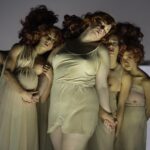
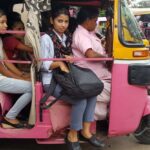


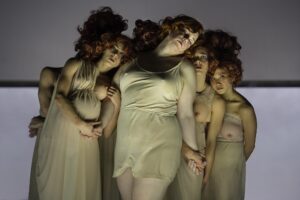
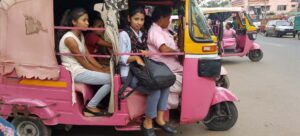
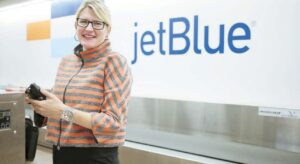
One thought on “Being Funny In A Man’s World, Desi Women Comedians Speak Out”
Comments are closed.